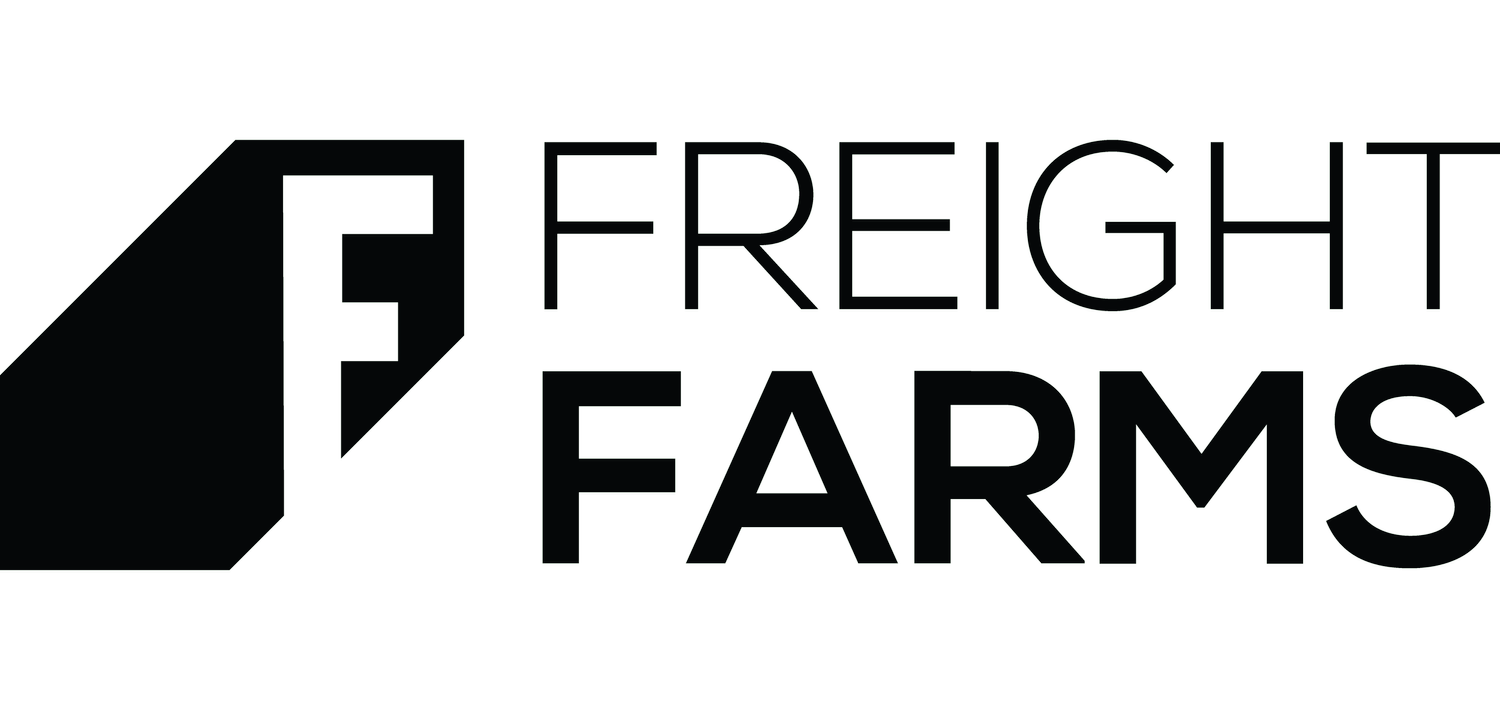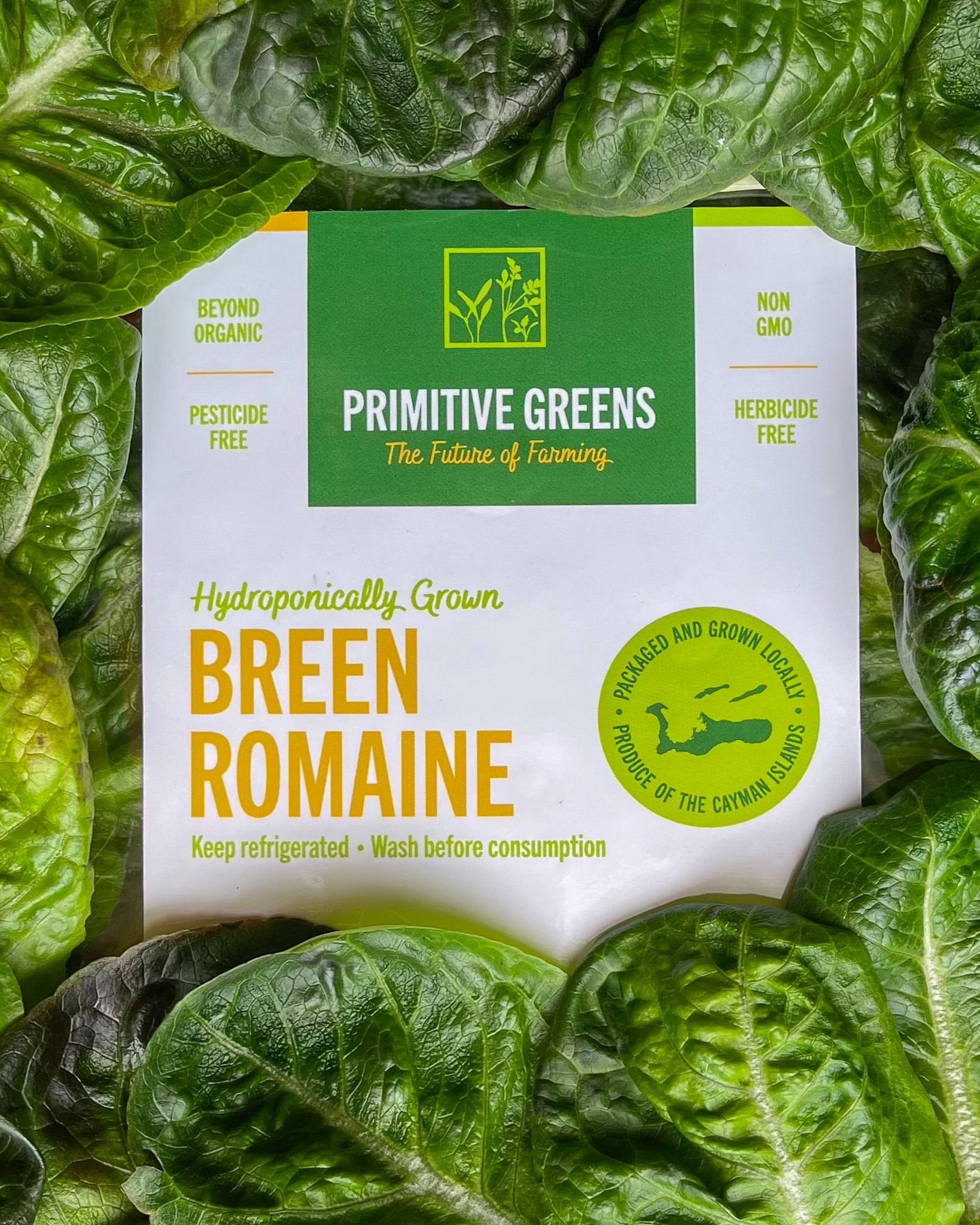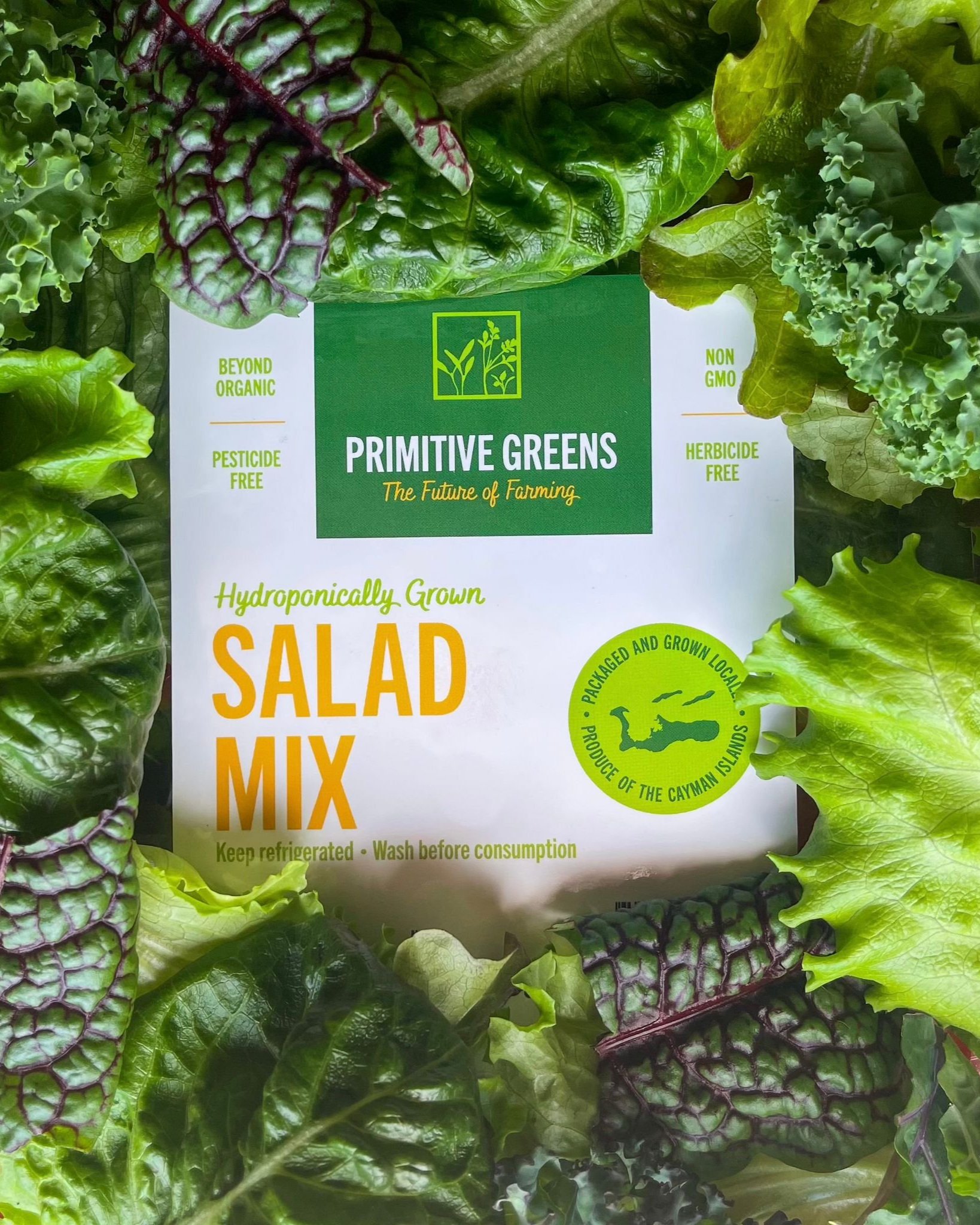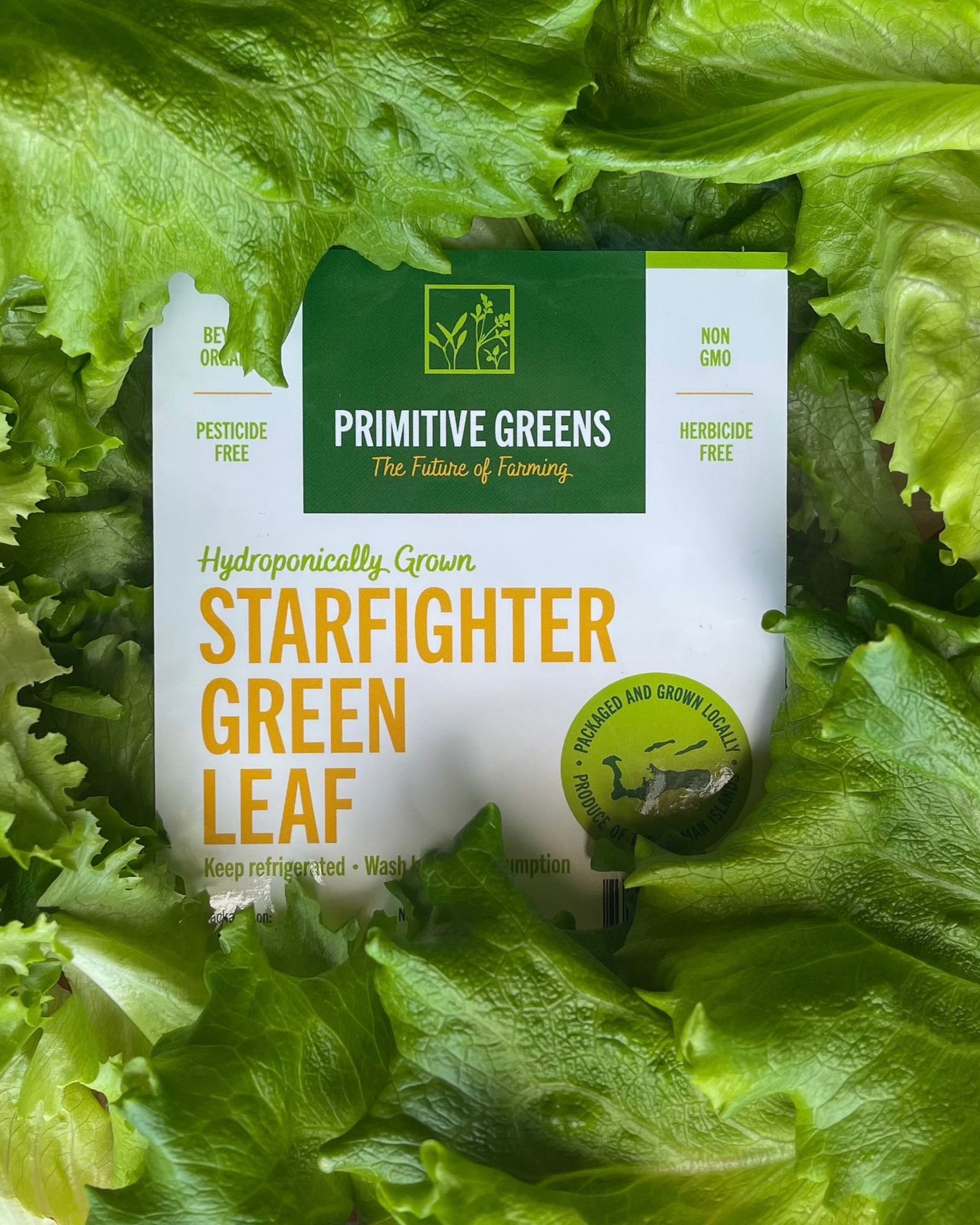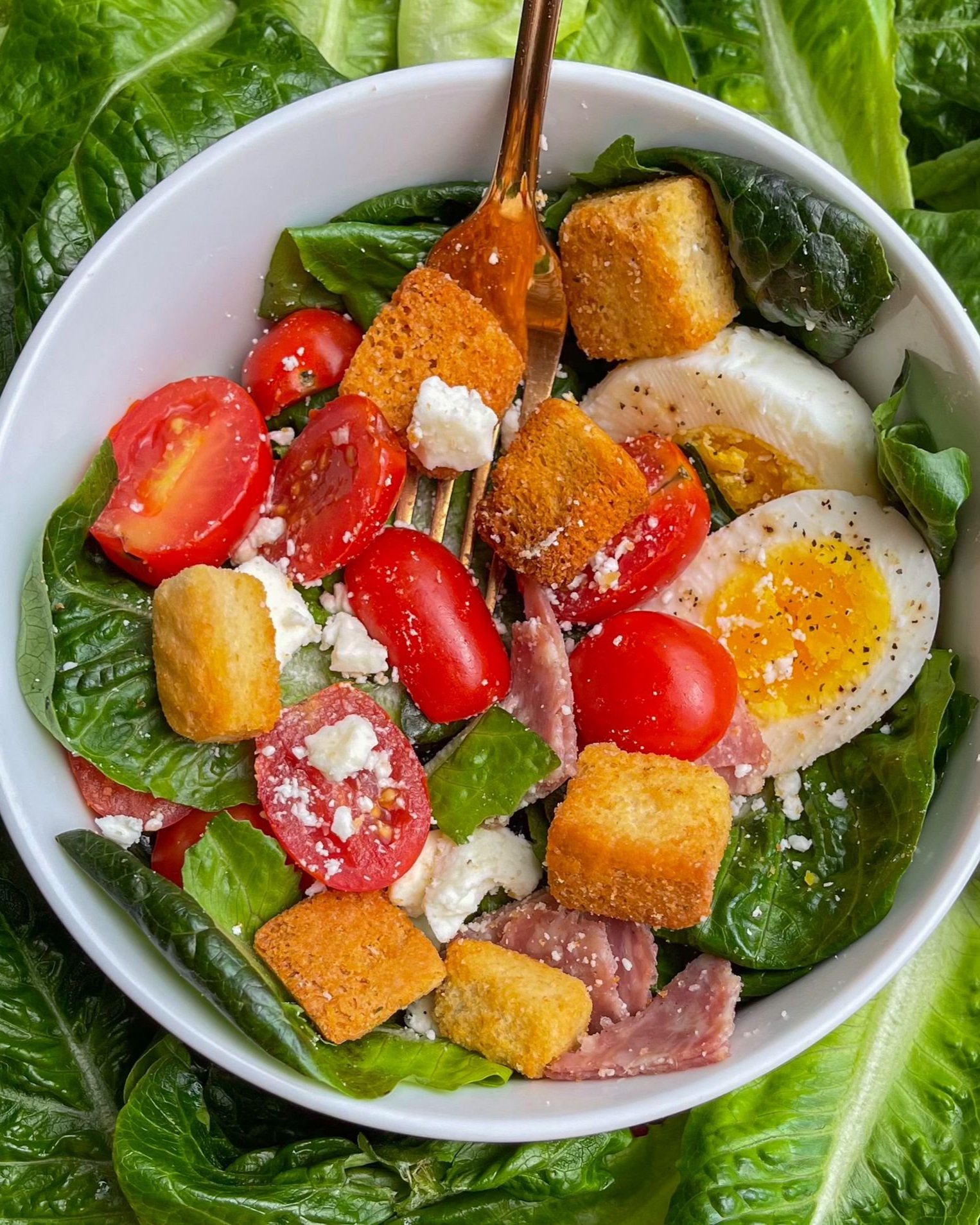Primitive Greens
George Town, Cayman Islands | EST. 2020
Farmer
Codi Whittaker
Business Model
Growing company selling to grocery stores and restaurants
No. of Farms
Three
Area Served
Cayman Islands
Main Crops
Lettuces and leafy greens
Farm Models
LGM, Greenery™, Greenery S
In the Cayman Islands, the average head of lettuce costs a hefty $6. With only inconvenient shipping routes connecting the Caribbean islands to fresh produce, Cayman, in spite of its thriving food culture, is food insecure. To alleviate the situation, Codi Whittaker, a young Freight Farmer, has become the source of fresh produce on the island.
Food Access in the Cayman Islands
With the Cayman Islands’ beauty comes a challenging food supply chain. The islands only produce about 1% of their own food, with the rest of the food they consume sourced from Jamaica, Honduras, and, largely, the United States. In this respect, Cayman is similar to most of the Caribbean islands, only a few of which produce more than half of their own food.
Relying on shipped produce results in precarious food security. To make matters worse, there are very few direct shipping lines from food-producing Caribbean islands to the Cayman Islands: Ships must travel up to Miami and then back down the Cayman Islands to reach them. With a shipping route this lengthy, the fresh food that the Cayman Islands ultimately receives is no longer very fresh … and it’s also very pricey. Codi’s desire to ameliorate this situation is what spurred him to launch his business, Primitive Greens.
“Farming in the Caribbean is an issue. A lot of the Caribbean islands are small; arable land is at a premium; and the weather is always changing. So when I was looking at different things I could do to combine my degree and something else, I was mainly looking at the food sector.”
Primitive Greens
Codi started Primitive Greens after graduating from college. He saw a few options for himself post-school: join the traditional workforce, go to grad school, or do something meaningful for his community. He chose option C, launching his business to help his island while putting his computer science degree to use operating the techy vertical farm. With the financial assistance of his business partner, Kerry Lawrence, Codi bought his first container farm, a used Freight Farms Leafy Green Machine (LGM), in 2020.
Codi took a very methodical approach to starting his business. Before his farm arrived, he and Kerry did extensive business planning work — doing market research, running numbers, and preparing for the future. Codi then spent the first year after his farm’s arrival conducting research and testing.
First came the task of learning to grow in the hydroponic farm, which — while it is a controlled growing process — did come with a learning curve. Codi’s first heads of lettuce weighed in at just one ounce, but, eventually, he worked his way up to four-ounce heads.
Then came understanding how the lettuce behaved. Most supermarkets in the Cayman Islands have no misting system, which was important in determining how to package the greens for a longer lifespan. Codi conducted tests in his own refrigerator — storing the lettuce in a bag, without a bag, striving to keep the root ball moist — to achieve that three- to four-week lifespan and ascertain how to advise his customers to store his product.
Building Business Relationships
In their business planning process, Codi and Kerry found that speaking to stakeholders at the grocery stores and restaurants in the Cayman Islands wasn’t a problem — they were easily able to get in touch. What was more challenging, however, was educating staff and making the final sale with the stakeholders making purchasing decisions.
To aid in gaining customers, after he gained confidence in growing lettuce and in its durability, Codi gave a couple hundred heads of lettuce away to grocery stores and restaurants as trials. The grocery stores put it on their shelves to see how it would sell; restaurants tested it on their menus.
A big success, the trials set the foundation for ongoing relationships with his buyers and the tone for the potential of his business. A year after receiving his LGM, with Primitive Greens ramping up, Codi purchased another farm, a new Greenery™. Then, a year after, he got a third: a Greenery S farm. He intends to continue scaling with three more farms in 2023, with plans to build a facility to house all his farms on the horizon.
Selling
Codi has a purchasing agreement with Foster’s Supermarket, the largest grocery store group in the Cayman Islands. Selling a few hundred five-ounce packages of lettuce every week, Foster’s has reserved the entire output of his Greenery S farm. Restaurants and restaurant groups make up the other majority of his sales. For these clients, he focuses on baby lettuces and salad mixes, but does sometimes grow specialty crops like violas for restaurants.
He gets a great price for his crops: Lettuces, he sells for $10–13 per pound (about $3/head); salad mixes go for $12–14 per pound. At one point, he even brought in $29 per pound for red veined sorrel, but made the decision to stop growing it when he wasn’t able to keep up with the demand.
These prices are good for Codi as a businessman, and just as good for islanders, providing them a cheaper, fresher alternative to the typical $6 imported lettuce heads.
Sustainability
Codi wants to make his business more sustainable — for the environment, his community, and his bottom line.
Energy cost is up everywhere, and the Cayman Islands are not immune. Currently, Codi pays about $0.35 CI ($0.40 US) per kilowatt hour of electricity — mostly from dirty diesel fuel offered by the local utility. With three farms and more on the way, the cost of energy to operate his farms is prohibitive to his financial success and his ability to deliver food security to the island.
So, he developed a plan to install a solar and energy storage microgrid that would fuel the farms with 100% clean energy. It would also provide resiliency through power that is available 24/7 and independent of the electrical grid. However, Codi felt that clearing the land that he’d saved by farming vertically to install solar panels was counterintuitive. Instead, he is pursuing a floating solar system, a setup in which solar panels will be floated in the water of a former quarry next to the farms' main production facility.
“Even though we’re saving a lot of land by growing vertically and in the container, we didn’t want to clear the land that we saved to develop solar.”
The plan is to collect energy from the solar panels and sell what isn’t consumed by his farms back to the local utility, subject to the approval of the electricity regulator, OfReg. However, there, he’s hit a roadblock. For months, he has been negotiating with the regulators to have a solar energy agreement approved, but OfReg has been stalling.
The reasons are still unclear; after all, Codi has proposed to sell his excess clean solar power for $0.11/kWh to the local utility, which is significantly lower than the current cost of energy on the island. If approved, the alleviated energy cost will enable Codi to scale up his existing operations to provide 100% of the island’s green leaf produce.
Codi is waiting until the deal goes through to move forward with the solar energy project and the building of the main production facility. In the meantime, he’s taking on the higher cost of energy and working to sell as much lettuce as possible to restaurants and grocery stores to offset his energy costs until regulatory approval is given and production can be scaled up.
“We’re basically selling the community cheaper, healthier, more sustainable, locally grown food; we’re providing power for less than half the cost of diesel; we’re creating food security; we’re creating jobs; and we’re not clearing any land. All the regulator has to do is approve it. For 11 cents per kWh, you can get food security, educational benefits, job creation — all of that, for a simple yes.”
Watch our webinar recording with Codi!
Recorded: January 25 at 1 PM EST
Learn more about Primitive Greens, food security in the Cayman Islands, and Codi’s efforts to make his vertical farming business as sustainable as possible. Access the webinar, Cultivating Fresh Food, a Successful Business, and Long-Term Sustainability for the Cayman Islands using the form below.
